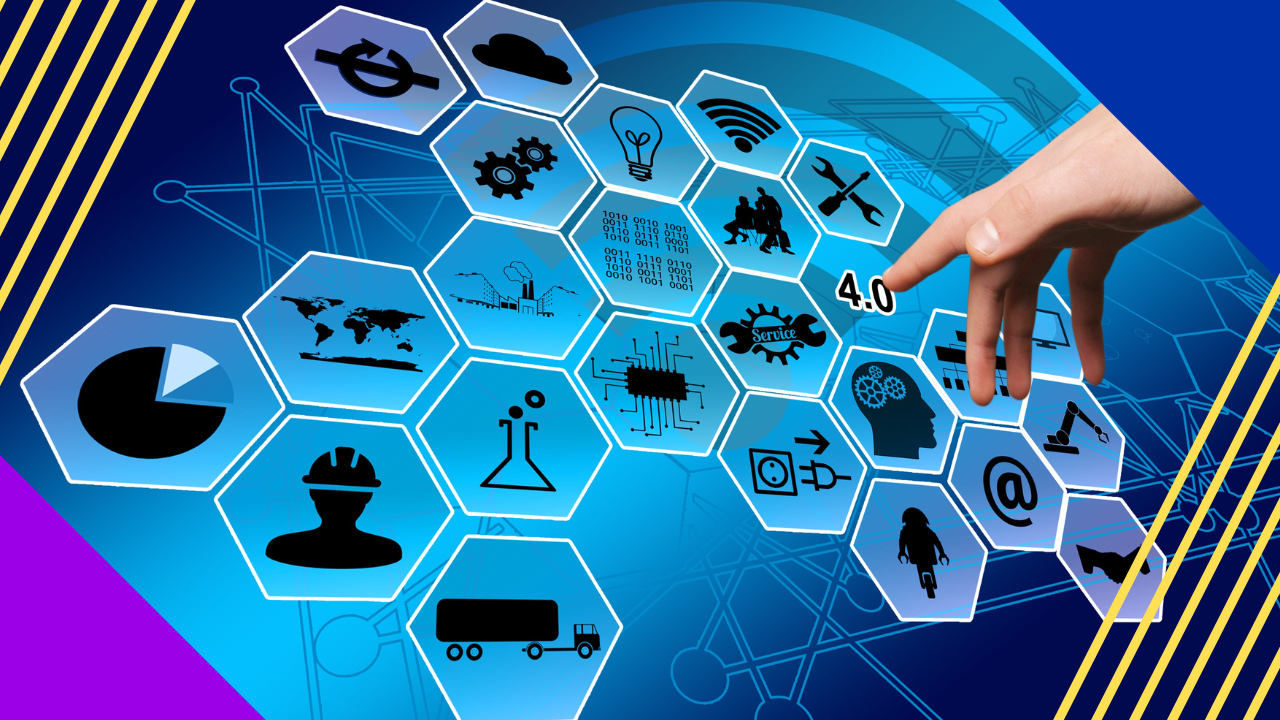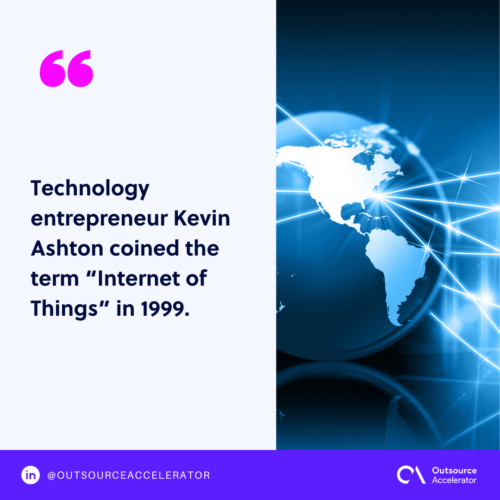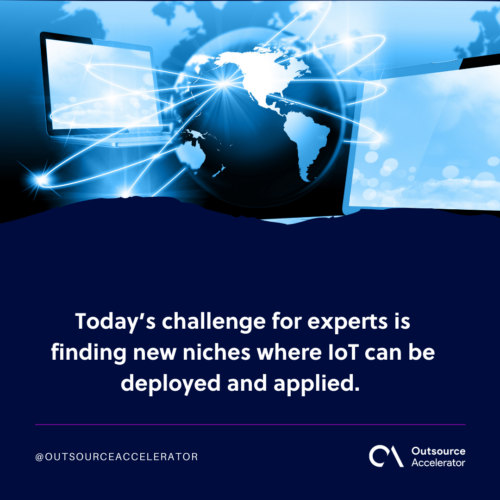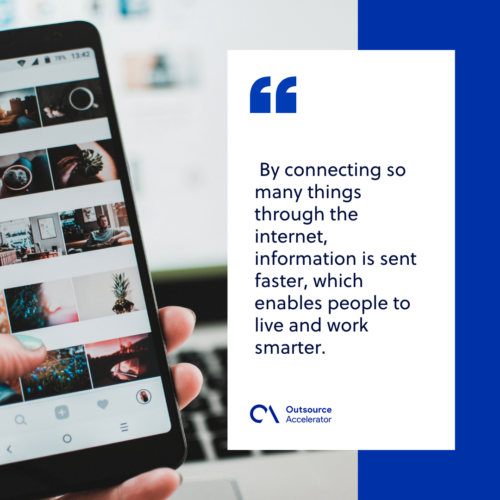The Internet of things: What is it?

We started on farms, then lived in cities, and in the future, we’re going to live on the internet. We haven’t quite come close, but day by day, human society is adding a digital and internet aspect to old devices and making them new.
There’s no better term to describe this trend than the Internet of Things (IoT).
What is the Internet of things?
Technology entrepreneur Kevin Ashton coined the term “Internet of Things” in 1999. However, the concept had been developing among mechanical minds as early as 1932. IoT kickstarted in 1982 with the connection of a computer network to a vending machine at Carnegie-Mellon University.
By definition, the Internet of Things describes the nature of everyday physical devices being in a digitally connected network. These devices allow communication and control through the internet with sensors, software, and other technologies.
Enabling internet connection to a “dumb” physical device makes it “smarter,” allowing it to receive and send data. IoT isis found in a host of devices, industries, and settings. It is estimated that as many as 22 billion devices will be part of a greater IoT network by 2025.

How does the internet of things work?
The Internet of Things takes this process:
- Physical devices are equipped with technology, such as scanners or sensors, that allows them to collect data from their environment. These are internet-connected devices, so they all come with an IP address.
- The collected data is shared to a gathering point, usually an online cloud network. This is where the data integrates from the device hardware into software. Moving the data can be done wirelessly with different technologies or wired networks.
Data can also be transferred in phases, with intermediary devices performing different functions like – data aggregation, formatting, and other transformations before sending it for analysis.
- Finally, the last stage is data processing and analytics. In the cloud, the software analyzes and transmits the data to platforms that are accessible to end users, such as websites or mobile apps.
Some industries use edge computing technology, allowing them to accelerate this process.
Internet of things devices and applications
Any device that can gather and transmit information about the physical world can be incorporated into the universe of the Internet of Things.
Today’s challenge for experts is finding new niches where IoT can be deployed and applied. Here we have 10 examples of IoT on devices and applications:

1. Smart homes and cities
It is predicted that smart homes will eventually become as ubiquitous as smartphones and grow into smart cities. With this technology, your phone can control all home appliances, from lights to temperature to security locks.
On a much larger scale, smart cities promise better traffic control, surveillance and urban security, and wide-ranging communication.
2. Industrial assembly
IoT heavily affects how industries manufacture, transport, and maintain their products. With connected internet software, companies take better inventory, identify faulty materials, and most clearly, automate machines to work for them.
3. Wearable activity trackers
Similar to smartphones, wearables are handy devices that carry an array of functions. They can enable text messaging, phonecalls, and monitor your activity through sensors. This data gained can then be used as indicators for wellbeing and even entertainment suggestions.
4. Healthcare
The concept of interconnected healthcare devices is an untapped well for the medical field. Currently, this technology closely integrates with wearable devices to record an individual’s health and energy level.
5. Banking and financial services
Financial technology is becoming increasingly popular for convenience and accessibility. The financial services sector is usually quick to adopt new technologies, and involvement in the Internet of Things is no exception.
IoT devices take the form of ATMs, interactive payment cards, and intelligent asset monitoring.
6. Augmented and virtual reality
Although the concept of the Internet of Things relies on physical devices as well, the potential is there to create a new plane of existence in the form of augmented and virtual reality.
The beauty of AR and VR is their flexibility to be applied to various fields. Examples of these are visualizing surgeries for medical service, as teaching aids for education, and even virtual offices. Wearable gadgets are again implemented, specifically around the visual area.
7. Disaster management
Now taking a more naturalistic step, the Internet of Things can also be applied to disaster management. Sensors can be installed around disaster areas such as beachfront or dry forests. Detailed reports can then be sent to rescue services to mitigate the impact.
8. Farming and agriculture
It sounds ironic, but the internet and farming can indeed coexist. An IoT-based farming system can be designed to suppress the effects of climate change, water crises, and seasonal problems.
IoT can even be used to manage irrigation systems and select crops with more nutrients.
9. Shopping and retail
The Internet of Things is a means for consumers to connect with retailers to provide an experience beyond the physical store. Interacting with smartphones and guiding consumers through stores to ease their shopping is another benefit of IoT.
10. Energy Engagement
Power grids with IoT are expected not just to be robust but also reliable. Smart grids will be capable of collecting and analyzing data to improve efficiency for consumers and suppliers.
A better-distributed energy system will also be a factor in developing smart cities.
The importance of the Internet of Things
The Internet of Things, at present, has a significant influence on human life and work. In recent years, it has become one of the most important technologies of the 21st century. By connecting so many things through the internet, information is sent faster, which enables people to live and work smarter.

IoT also benefits businesses, giving them an introspective look at how their systems work. Extremely extensive, it delivers insights from machine performance to supply chain and logistics operations.
Information systems can run smoothly with IoT. Data can be shared between the cloud and more physical technologies, all with little human intervention.
The physical world meets the digital world, and they coexist. As more organizations utilize it, the possibilities will only begin to grow.
Explore Itransition‘s IoT development services to unlock the full potential of this digital transformation for your business.







 Independent
Independent




